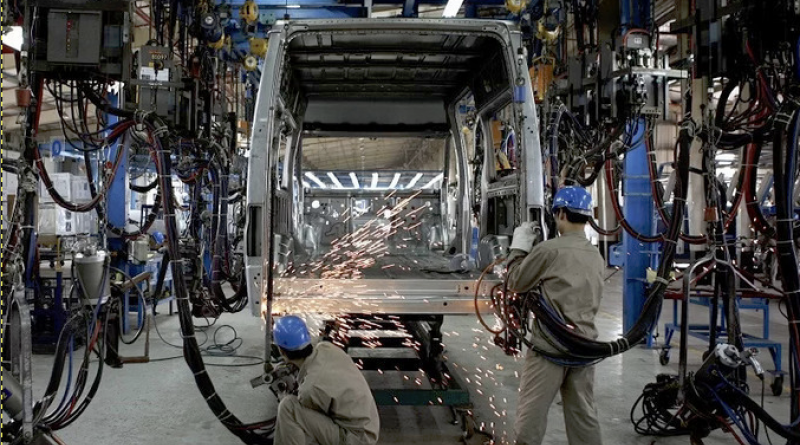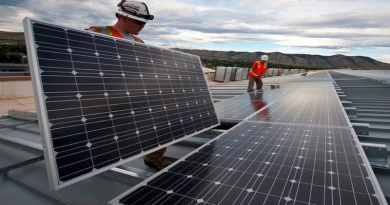Vietnam businesses doggedly fight Covid-19 pandemic impacts
Turning production premises into safe isolated areas and greater digitalization are key measures companies in Vietnam have taken to tide over the Covid-19 crisis.
In a survey that polled 358 businesses in the country online and on the phone, 6 percent turned their production premises into “isolated zones” to ensure safety and avoid production disruptions.
In such cases, employees are isolated within production sites equipped with disinfecting systems. For instance, the Hung Nhon Group, which produces chicken and pork in the southern province of Binh Phuoc, had its employees to stay on the farm without any contact with outsiders.
The survey was conducted mid April by the Private Sector Development Committee (Board IV) managed by the government’s Advisory Council for Administrative Procedure Reform along with VnExpress.
Survey findings show that all businesses still conducting office operations have imposed measures to limit the spread of the pandemic, requiring employees to wear masks, keep distances of two meters between two people and providing hand sanitizers.
Compared to a similar survey conducted by Board IV in early March, the percentage of businesses that seeked new markets and clients and provided new services by using digital platforms doubled to 16 percent.
Business have also adopted strategies of diversion (5 percent), and lowered prices while diversifying and improving the quality of their products or services (4 percent). Ten percent said they “had no solution”, down 50 percent compared to March’s survey.
Only 3 percent of companies applied long-term measures critical to their growth, like product innovation and research to make new products. A meager 2 percent created risk mitigation business plans.
Analysts said these low figures show that Vietnamese companies were weak at adopting crisis strategies, meaning they need technical assistance to improve their capabilities in this area.

Survey respondents also said they have tried to ensure the livelihood quality of its workers. Sixty percent of respondents said they were still paying employees at the normal or regulated minimum rate.
Only 4 percent of businesses said they have terminated work contracts with their staff. About 27 percent reduced working hours and wages but maintained staff strength. Only 8 percent suspended their operations.
Fruit grower and processor Nafoods in the central province of Nghe An said it has maintained its staff scale and cut the salary of senior leaders by half.
Compared to the survey conducted in March, the percentage of businesses allowing employees to work online has risen from 3 to 52.
Tech giant FPT Group conducted its first online shareholders’ meeting with 500 participants globally, while education firm IvyPrep Education closed some of its facilities and optimized online classes.
 |
But respondents in general said they were struggling to access credit at lower interest rates as banks were demanding mortgages or proof of cash flow, which is a time consuming process while the need for capital was urgent.
Business proposed that corporate tax and value-added tax be reduced, and asked that the payment of retirement fund, union dues, and voluntary insurance be delayed by 12 months.
Tourism companies wanted the government to issue visas for residents of the E.U., Russia, South Korea, Japan and other countries as soon as these regions/countries are able to contain the disease.
Other companies wanted the government to allow the creation of bank accounts using phone numbers to boost online sales and cashless payment.
The Covid-19 pandemic has severely impacted major sectors in Vietnam, especially tourism, transport, manufacturing and trade.
The Ministry of Planning and Investment recently proposed a 50 percent cut in income tax for small and medium businesses; and an equal cut in value added tax (VAT) for raw materials, goods and services.
The government had earlier approved delays of up to five months for payment of VND180 trillion ($7.6 billion) worth of taxes and land use fees by businesses affected by the pandemic, effective starting April 8.
Source: vnexpress international







